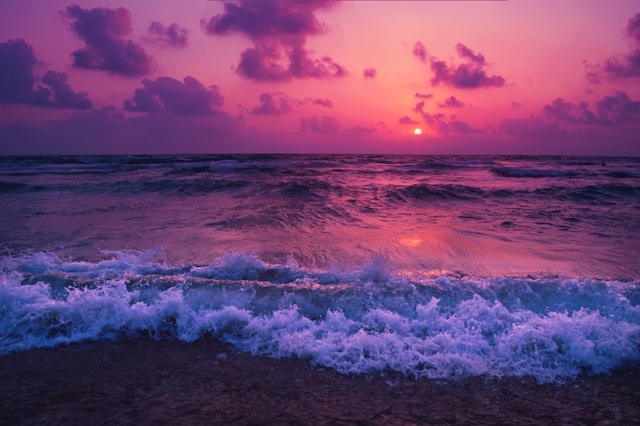Editor’s note: Changing the face of a globalist, imperialist organization whose mandate is the equitable exploitation of “the common heritage of mankind” will not stop deep sea mining. We will need to stop the first attempt at enclosure and destruction of the sea floor, by any means necessary. Delegitimize, discredit and scuttle this operation. If you would like to help contact Deep Sea Defenders.
Brazilian oceanographer Leticia Carvalho will be the next secretary-general of the International Seabed Authority (ISA), the U.N.-mandated organization that oversees deep-sea mining activities in international waters. She won the election with 79 votes, while her predecessor, 64-year-old Michael Lodge, who served as the ISA’s secretary-general for two terms, received only 34 votes. Lodge has previously been accused of siding with mining companies, which went against the duty of the ISA secretariat to remain neutral and may have influenced the direction of the prospective deep-sea mining industry.
Carvalho previously told Mongabay that she would work to make the ISA more transparent and rebuild trust within the organization.
Brazilian oceanographer Leticia Carvalho has been named the next secretary-general of the International Seabed Authority (ISA) after winning an election that could change the course of the deep-sea mining industry.
Carvalho, 50, who currently works as an international civil servant for the United Nations Environment Programme (UNEP), was declared the winner of the race on Aug. 2, the last day of the twenty-ninth assembly meeting of the ISA. She won the election with 79 votes, while her predecessor, 64-year-old Michael Lodge, who served as the ISA’s secretary-general for two terms, received only 34 votes.
Carvalho will begin her term at the ISA, the U.N.-mandated organization that oversees deep-sea mining activities in international waters, in January 2025. She will be the first woman, the first oceanographer, and the first representative from Latin America to serve in this position.
Commercial-scale deep-sea mining has not yet begun anywhere in the world, but mining companies have been pushing for an imminent start of this activity — and Lodge has been accused of doing more than he should to help this process along.
During his time as secretary-general between 2016 and 2024, Lodge pushed for the finalization of a mining code, a set of rules that would allow deep-sea mining exploitation to begin. However, this code was not ultimately finished over his tenure. Lodge has also been accused of advocating for mining companies, which goes against the ISA secretariat’s duty of remaining neutral and keeping the ISA’s processes and procedures unnecessarily opaque. More recently, Lodge was also embroiled in allegations that he misused agency funds and that one of his supporters tried to bribe Carvalho to drop out of the election in exchange for another high-level position within the ISA. Lodge, however, has refuted all of these claims.
In a previous interview with Mongabay, Carvalho said that if elected, she would work to make the ISA more transparent and rebuild trust within the organization.
“For me, the mission of the ISA and the leadership of the ISA is to be a trustee — an honest broker that brings decision-makers together, offering space that belongs to the whole of humankind,” Carvalho told Mongabay in July. “It should offer transparency of its own procedures, on the decision-making processes, on the management of the budgets — all of this.”
One mining company, Canadian-based The Metals Company (TMC), has repeatedly expressed its intention to apply for an exploitation license later this year, even before the mining code is finished. However, Carvalho has said that she believes granting such a license before regulations are in place would be a “source of litigation.”
Advocates of deep-sea mining say seabed minerals are needed to fulfill metal shortages and provide materials for renewable energy technologies like electric car batteries. Yet critics say deep-sea minerals are unnecessary for such technologies and that deep-sea mining could irreparably damage the seabed and overall marine environment.

A recent study in Nature found that polymetallic nodules, metal-rich rocks found on the seafloor, produced a kind of “dark oxygen,” which experts say gives valid reason for slowing down the race to commercially extract nodules from the deep ocean.
During the recent ISA meetings, Austria, Guatemala, Honduras, Malta and Tuvalu joined a group of nations calling for a moratorium or precautionary pause on deep-sea mining. There are now 32 countries calling for such measures.
Matt Gianni, co-founder of the Deep Sea Conservation Coalition, a group of NGOs that campaign against deep-sea mining, said he was surprised by the number of country delegates that came to this year’s ISA meeting or sent in their proxy votes for the election, and also that “such a large majority” voted for Carvalho.
“This is a historic moment for the ISA and we congratulate Leticia Carvalho and the government of Brazil [for] her election,” Gianni said in a statement. “The ISA has an opportunity to champion a new way forward for sound ocean governance that prioritizes the precautionary principle and secures the health of the deep sea and its benefits for future generations.”
Elizabeth Claire Alberts is a senior staff writer for Mongabay’s Ocean Desk. Follow her on Twitter @ECAlberts.
Photo by Yousef Espanioly on Unsplash

